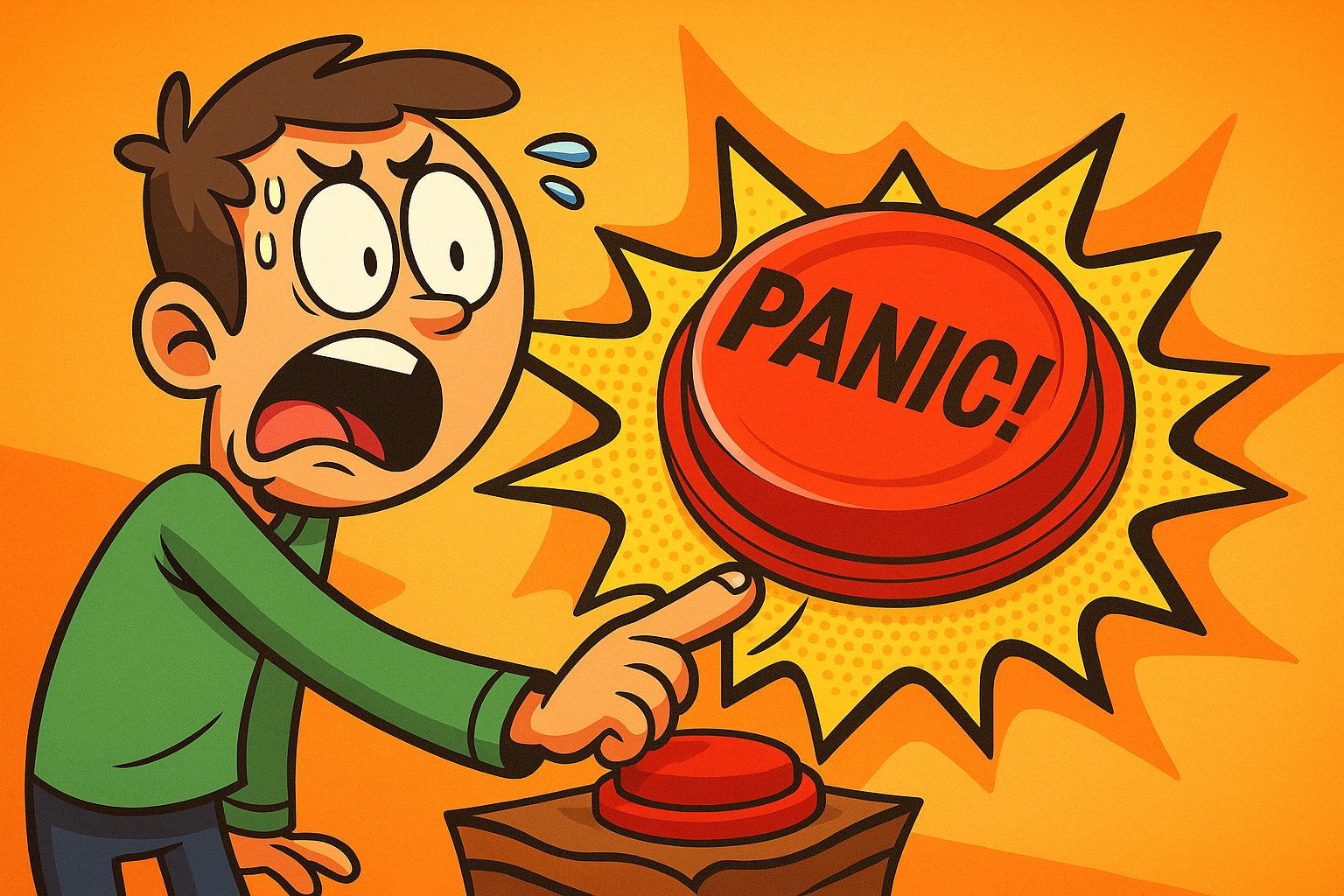Let’s be honest—when chaos hits the fan, managers are usually the ones holding the fan. Whether it’s a surprise medical emergency, a natural disaster, a rogue employee scandal, or just a really bad Tuesday, the last thing you want to be doing is Googling “how to handle a workplace crisis” from the company Wi-Fi.
This is where your friendly neighborhood HR pro comes in. Not the one who scolds you for forgetting to turn in your timesheets (okay, maybe also that one), but the one who knows how to manage the mess, calm the storm, and keep your team grounded without setting the office on fire—figuratively or literally.
When Plans Go Sideways (Because They Will)
Every manager has a plan… until the emergency exit signs start blinking and Sharon from accounting starts live-streaming the chaos to Facebook. The thing is, workplace crises rarely send calendar invites. They just show up, uninvited, and demand your immediate attention—medical emergencies, safety threats, tech meltdowns, public scandals. And no, your “gut instinct” doesn’t count as a crisis response plan.
HR doesn’t just bring policies—they bring people-centered action. They're trained to coordinate internal communication, ensure compliance, calm nerves, and help leaders make smart, fast decisions. That’s why when something goes sideways, your HR partner should be the first number you call—right after 911 if needed, of course.
But What If You Don’t Have HR?
If you’re leading a small business or a lean team, you may not have a full HR department to call on. That doesn’t mean you get a pass. It just means the pressure is on you to lead with clarity and compassion—and not panic. Here’s what you can do (even without a superhero HR cape):
- Communicate early, clearly, and consistently. Vague updates create rumors. Silence creates chaos.
- Prioritize safety and wellbeing first. People don’t care about your Slack being down if they don’t feel safe at work.
- Put it in writing. Verbal instructions disappear. Written ones protect you—and everyone else—legally and operationally.
- Don’t wing it. Have a response plan or template ready. Trust us, you don’t want to improvise during a cyberattack.
Crisis Mode ≠ Chaos Mode
The best crisis response looks boring—organized, calm, and decisive. That’s the magic of partnering with HR. They’ve thought about the nightmare scenarios so you don’t have to. They’ve written the policies. They’ve prepped the talking points. They’ve probably even drafted a sample Slack message for you to send to the team. You know, just in case.
But when you go rogue—firing someone over Zoom, changing policies on a whim, or pretending like a natural disaster doesn’t apply to your storefront—you’re setting yourself (and your business) up for disaster within the disaster.
Don’t Forget the Risk Assessment (Yes, Even That One)
You know what’s worse than a crisis? A crisis you never planned for. That’s where risk assessments come in—and no, they’re not just a fancy HR term to scare you with spreadsheets. They’re the difference between “we handled that like pros” and “we panicked and hoped no one noticed.”
Bad things don’t schedule meetings. Your server will go down right when you need it most. Your internet will suddenly ghost you mid-payroll. A fire might break out on the hill next to your office full of valuables. Someone’s going to forget the “R” in PRINDL and end up driving through your front windows. It happens.
OSHA already requires employers to have emergency action plans—but those usually focus on the big-ticket items like fire drills and medical incidents. What about the messy, inconvenient stuff that doesn’t fall under an OSHA checklist? What’s your plan when your POS system dies on Black Friday? Or your office plumbing goes full disaster mode during a client visit?
This is why risk assessments matter. You don’t need to prepare for everything, but you do need a plan for the most likely (and the most chaotic) possibilities. Walk through your location, your tech stack, your team—ask yourself, “What could go wrong?” Then create a plan for it.
If a crisis hits and you’ve already walked through it on paper, you don’t have to think in the moment. You just execute, stay calm, and adjust if needed. Risk planning doesn’t make you paranoid—it makes you prepared. And prepared leaders are the ones whose teams trust them when it counts.
What If You Had 40 People Looking at You?
Imagine this: You have 40 employees. Suddenly there’s a crisis—something unexpected, messy, and loud. And not one of those 40 knows what to do. Your managers start improvising, someone gives a customer the wrong information, another team member starts handing out free services “to be helpful,” and now you’ve got a public relations nightmare.
Why? Because you didn’t have a plan.
Now they’re all asking you what to do. The plan you never finished (or never started)? You're trying to build it in your head while answering five questions, three texts, and an angry client at the front desk. You’re in panic mode pretending you’re calm, hoping no one notices. Spoiler: they notice.
Crisis happens all the time—on TV, in business, in life. But what people really pay attention to is how it’s handled. No one’s mad the server went down. They’re mad no one knew what to say when it did.
Be the person who handles it like a pro. With a plan, a steady tone, and a team that trusts you because you already thought this through.
HR Is Not a Hall Monitor. They're a Strategic Partner.
So if you're a manager thinking, “I don’t need HR for this,” ask yourself this instead: Would you go into a financial audit without an accountant? Then why are you trying to handle an employment crisis without HR?
Having an HR partner in your corner isn’t about bureaucracy. It’s about having someone who can help you see the big picture and the human one - from preventing an employment crisis, leading managers through one, or better yet, developing a plan for when the lights go out.
TL;DR? Don’t Wing It.
Crisis's happens. Be prepared. Get HR on your team before you need them, not after. And if you’re not sure where to start? Well… NevadaHR might just be the hero you need. 😉


